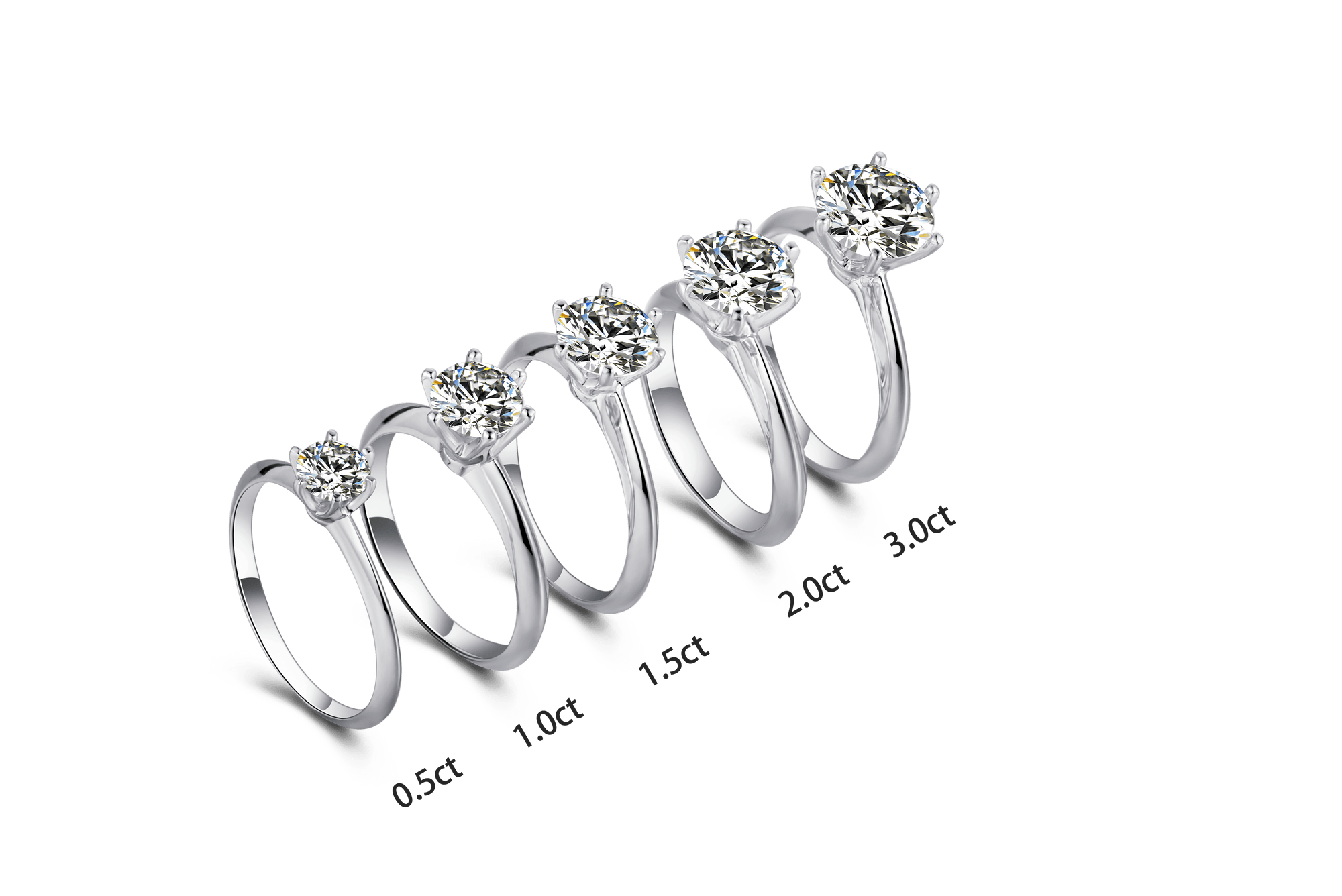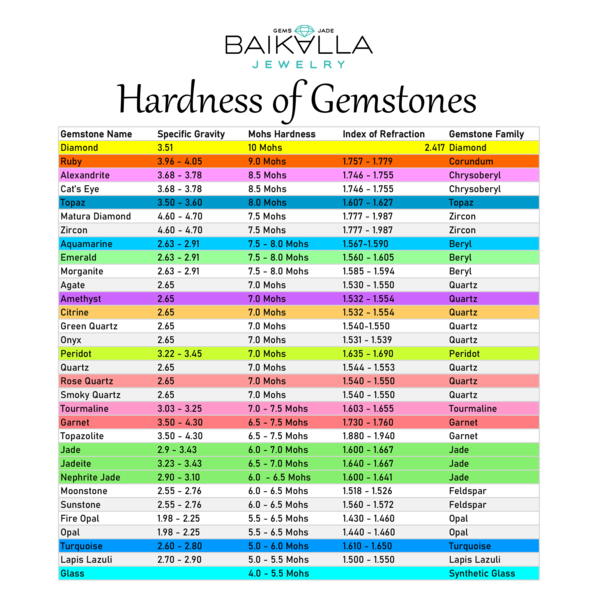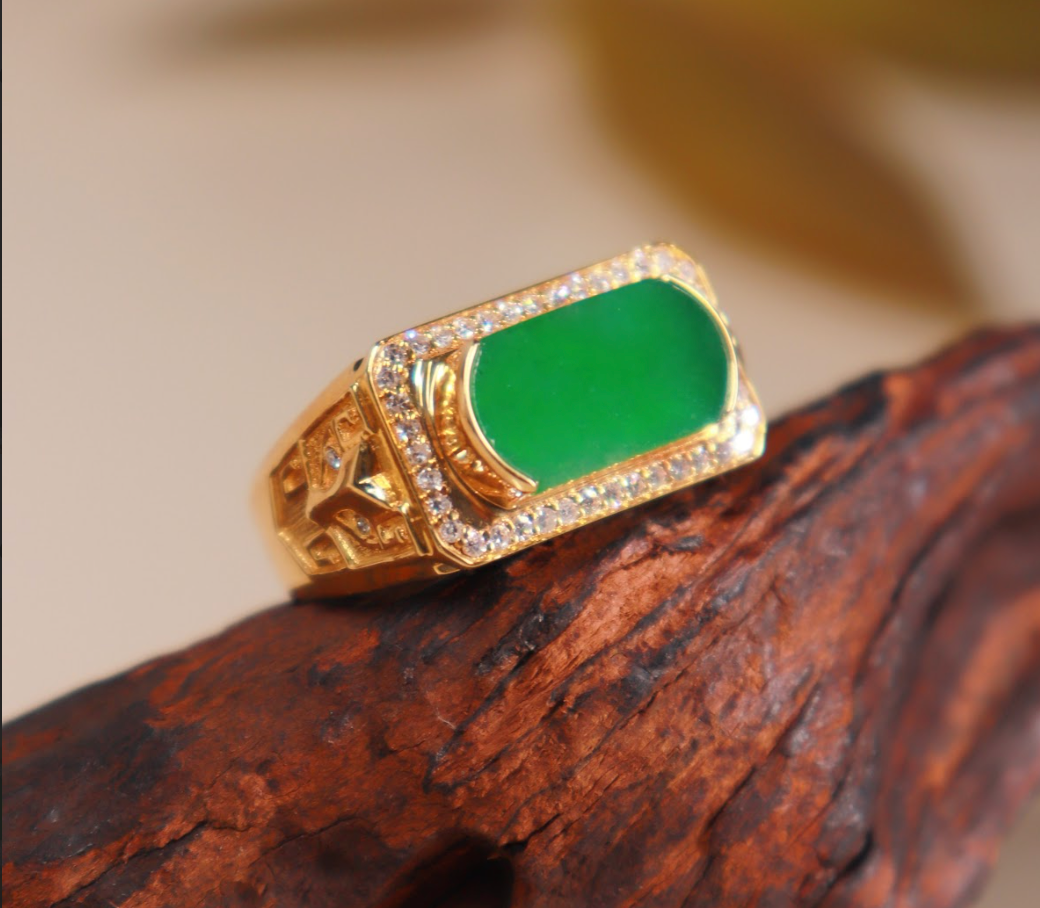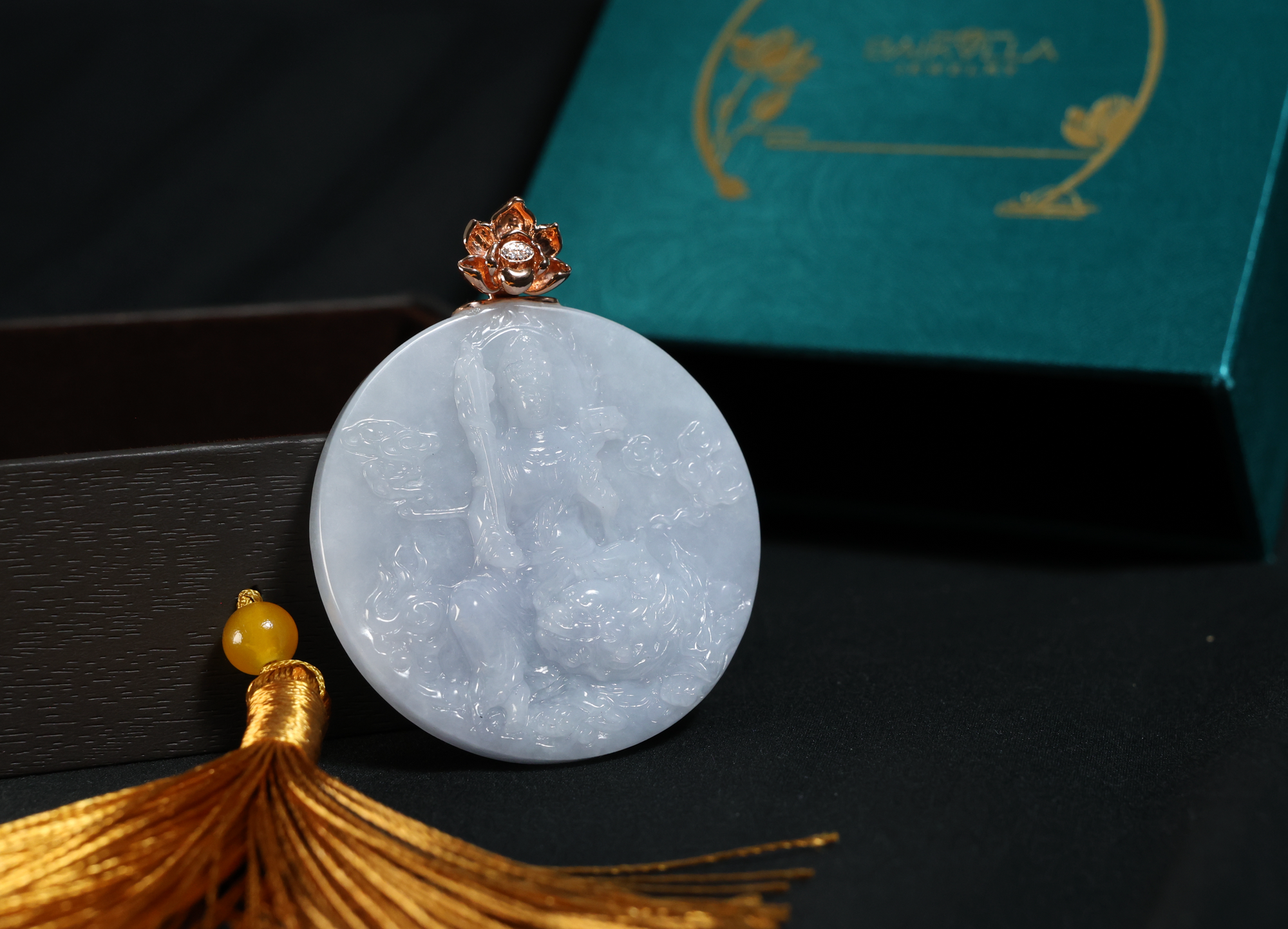BIRTHSTONES
DECEMBER BIRTHSTONE
Learn More From GIA:
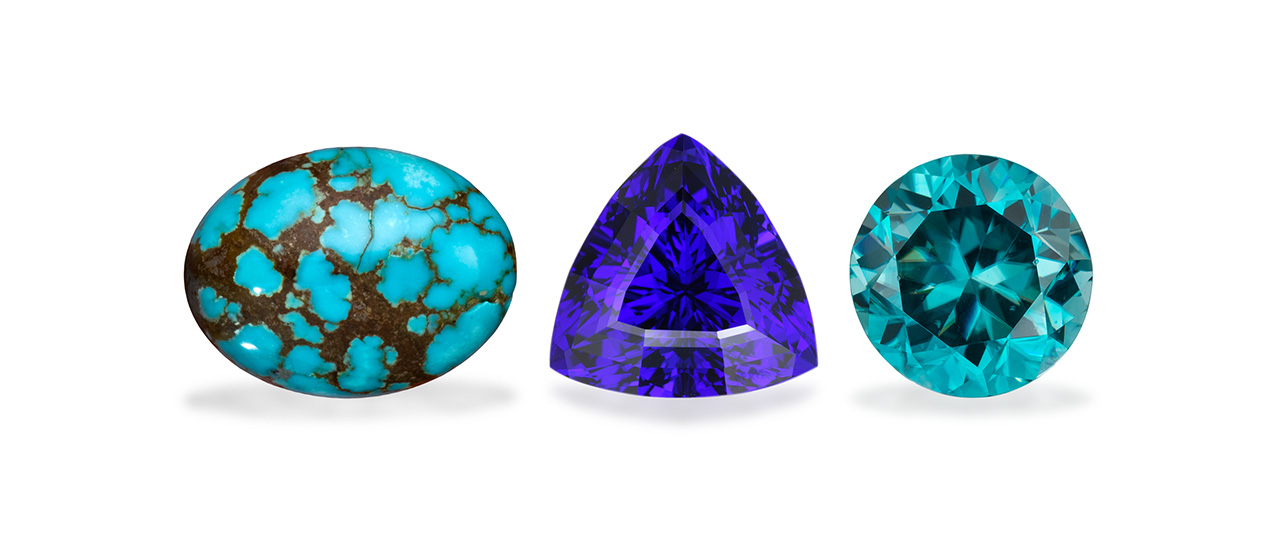
If you had to pick one December birthstone, which would it be: tanzanite, turquoise or zircon? From the blue to bluish purple of tanzanite, to the intense blue and green of turquoise, to the rainbow varieties of zircon – there’s a color for everyone. If blue is what you’re looking for, all three December birthstones have their own unique take on this favorite hue. Whatever your color, style or budget preferences may be, we can help you pick the right December birthstone for you or a loved one.
TURQUOISE BIRTHSTONE
TURQUOISE BIRTHSTONE MEANING & HISTORY
Turquoise is a semi-translucent to opaque gem that ranges from blue to green and often has veins of matrix (remnants of the rock in which it formed) running through it. This December birthstone has been cherished for millennia. The pharaohs and other rulers of ancient Egypt adorned themselves with it. Chinese artisans carved it more than 3,000 years ago.
The turquoise birthstone was thought to possess many beneficial powers, like guaranteeing health and good fortune. From the 13th century on, it was believed to protect the wearer from falling (especially off horses), and would break into several pieces at the approach of disaster. Hindu mystics maintained that seeing a turquoise after beholding the new moon ensured fantastic wealth.
This turquoise birthstone also played an important role in the lives of Native Americans. The Apache thought turquoise could be found by following a rainbow to its end. They also believed that attaching the December birthstone to a bow or firearm made one’s aim more accurate. The Pueblo maintained that turquoise got its color from the sky, while the Hopi thought the gem was produced by lizards scurrying over the earth.
This December birthstone adorns the funerary mask of King Tut, who ruled Egypt more than 3,000 years ago. It also appears in jewelry belonging to more modern royalty: Wallace Simpson (1896–1986), Duchess of Windsor (the woman for whom King Edward VIII gave up his throne), wore a famous amethyst and turquoise necklace made by Cartier. Turquoise is also the gem of the 11th wedding anniversary.
In European tradition, the gift of a turquoise ring means “forget me not.” Turquoise is considered a national treasure in Tibet, where it is believed to grant health, good fortune and protection from evil. December's birthstone also imparts peace to those who wear it.
WHERE IS TURQUOISE FOUND?
Turquoise has been mined in the Nishapur district of Iran for more than 1,000 years. The prized even-colored, intense blue turquoise from this region is dubbed “robin’s egg blue,” “sky blue” and “Persian blue.” Trade professionals now use these terms to describe turquoise of this color – regardless of the source.
Although New Mexico was the largest producer of turquoise in the U.S. until the 1920s, today most of the U.S. production of this December birthstone comes from Arizona and Nevada. Mines have evocative names like Dry Creek, Easter Blue, Emerald Valley and Fox. The Kingman mine in Arizona is a historically important source that is known for producing intense blue turquoise. Now closed to turquoise mining, Arizona’s Sleeping Beauty mine was a prolific producer for more than four decades.
Today, China is the world’s largest producer of this December birthstone. Hubei Province, in central China, is the source of most of the gem-quality turquoise currently being mined there.
TURQUOISE BIRTHSTONE CARE & CLEANING
Some turquoise is treated to improve its durability (it has a Mohs hardness of 5 to 6), appearance and polish. Turquoise can be dyed or chemically enhanced by adding an epoxy or acrylic resin for greater hardness or better color. Also seen are cavities filled with a metal-loaded epoxy to imitate pyrite inclusions.
Turquoise is generally stable to light, but high heat can cause discoloration and breakage. Your turquoise birthstone can be damaged by acids, and it can be discolored by certain chemicals, cosmetics and even skin oils or perspiration. It’s safe to clean turquoise jewelry with warm, soapy water, but this December birthstone should never be cleaned with steam or ultrasonic cleaners. Heat or solvents can damage the treated surfaces on some turquoise.
## Follow us on Instagram, facebook, youtube for more information.
Facebook: https://www.facebook.com/baikallajewelry
Facebook group: The Jade Group: https://www.facebook.com/groups/theja...
Instagram: https://www.instagram.com/baikallajew...
Twitter: https://twitter.com/BaikallaJ
Pinterest: https://www.pinterest.com/baikallaj/


